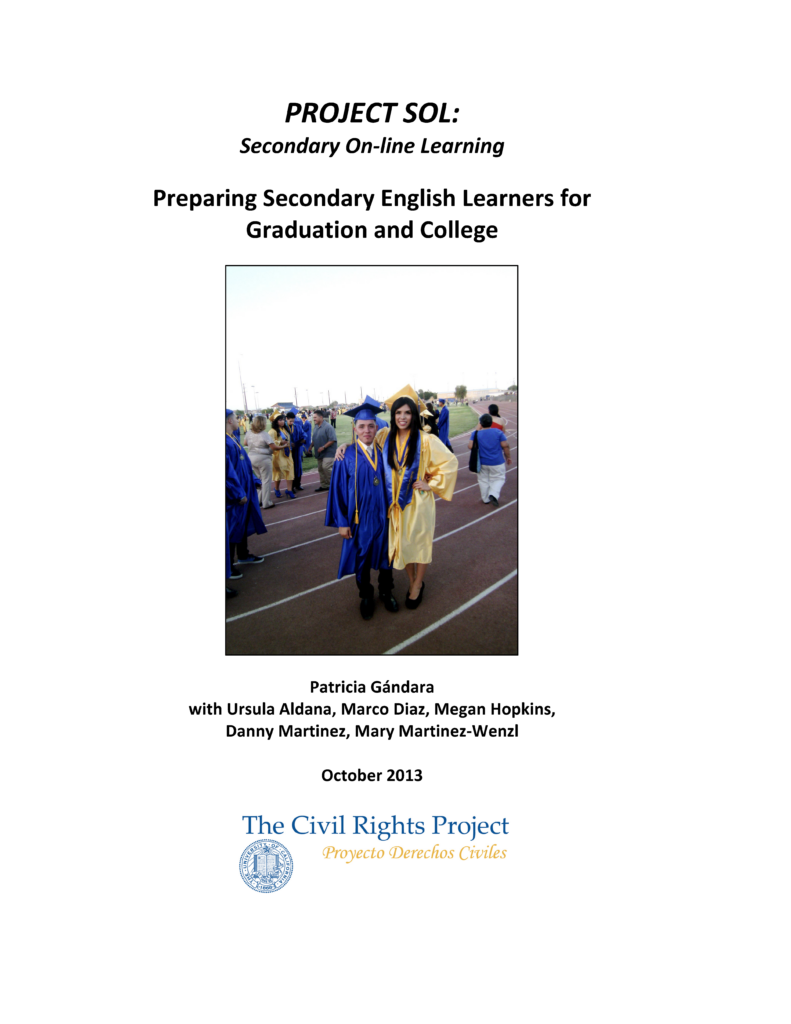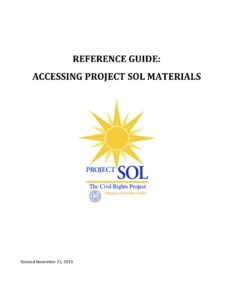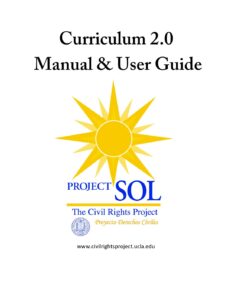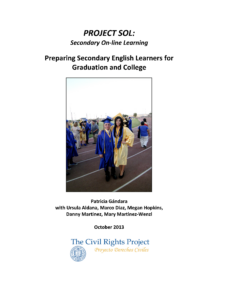Overview of the Study:
The SOL (Secondary Online Learning) Project set out to provide a means by which Spanish-speaking high school immigrant students with very limited English could continue their education, while they learned English, and have a viable chance at graduating high school and preparing for college. Our research had shown that many young people who enter the U.S. as adolescents without knowledge of English languish in schools that are not prepared to serve them, and too often simply drop out. We believed that if we trained and supported teachers in the use of a Spanish language, online curriculum, in the core areas of math and science that was aligned to California’s standards and acceptable for college preparatory credit, and if we offered support services to the students and to their parents, we could increase graduation rates and matriculation into college. We hoped to provide an antidote to the heartbreaking dropout statistics for Spanish speaking English learners.
As this report shows, we did accomplish a great deal. We provided almost 500 Spanish-speaking immigrant students access to key courses resulting in almost 1000 college preparatory course enrollments, and most of the students passed those courses. We opened students’ eyes to future possibilities they were not aware of, and we helped get critical information to parents about how to support and advocate for their children. We helped teachers to blossom into technologically savvy, expert bilingual educators with a deepened passion for serving these students. We also fundamentally changed the view of teachers about what these students were capable of, and we helped schools to realize new ways to address these students’ needs. But we also discovered that many more things than we initially anticipated encountering were beyond our control and that one intervention into the lives of children who are battered and buffeted by circumstances beyond their control, is not sufficient to change lives, at least not in the short run. In the following pages we recount our triumphs as well as our disappointments, and we also share our vision of what a truly equitable education for immigrant students might look like.



